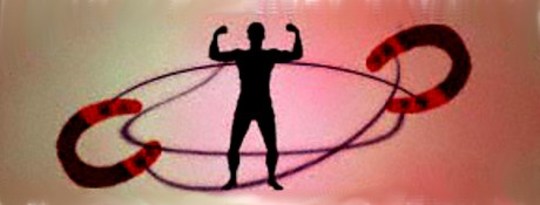Our digestive system has to break down into their useful component parts a variety of different 'feedstocks' each requiring a different process. The foregoing consideration leads to the concept of eating food in batches, which require the same chemical and mechanical treatment in the digestive tract. It is known as the principle of proper food combining.
Minerals are essential to keep our chemistry in balance and to supply our bones, blood, and tissues with the elements necessary for normal function and growth. Minerals are needed in the tissues for tone and as conductors of electromagnetic light waves, which link the chromosomes of the cells to the finer energies of Nature.
- By Geoff Bond
Everything we know about our prehistoric ancestors is that they were lean. If they finished lunch hungry, they had a choice. Go off for an hour or two and find more food or have a siesta during the heat of the day. You had to really want the food to go to the effort of getting it. Today of course, in the affluent countries, we are surrounded by food.
If you decide to become a vegetarian for loving reasons, such as loving your body, your spiritual gifts, animals, and the environment, you'll enjoy the transition more. However, if you are motivated by fear -- such as wanting to lose weight to please someone else -- you're apt to struggle with food cravings and dissatisfaction.
For generations, every male on my father's side of my family suffered from a similar fate: a premature heart attack that cut their life short decades too early. I knew I couldn't change my genes, but I was determined to find a way to lead a normal, healthy life span...
Genetically altered food is being quietly slipped into our markets and supermarkets without proper labels, and without having passed adequate safety tests. Furthermore, genetically engineered food confers no advantage to consumers: it doesn't look better, taste better, cost less, or provide better nutrition. In Europe they call it "GMO food." Here, we use a new term: "genfood."
Whole grains are unrefined, exceedingly nutritious, and contain more vitamins, minerals, and fiber than their lighter, whiter, and fluffier counterparts found in commercially packaged goods.
Herbs And Cooking When cooking herbs there are certain things you need to remember. The food will taste as good as the mood you are in and whatever herbs you use to spice up the meal is according to one's own personal taste. Experimenting with herbs is fun and adds a bit of pizazz to one's daily meals.
Dietary Supplement Health and Education Act, which set up a new framework for FDA regulation of dietary supplements, requires consumers, as well as manufacturers, to be responsible for checking the safety of these products and determining the truthfulness of their label claims.
Cold sufferers take heart: A University of Florida study offers new evidence that zinc—the latest rage in cold remedies—may provide immediate protection against disease. "We were startled that the response in people was so dramatic and so rapid," said...
In early America, almost every Colonial home featured an herb garden, but somewhere along the line we lost sight of the value of herbs in cooking. Some things you need to know, about caring for herbs, center on how to harvest them...
- By unknown
The leaves, flowers and roots of many herbs may impart dye colors such as red, blue, green, yellow, brown and gray. The herbs can be either fresh or dried however the or dried however the fresher the herb... the brighter the color.
Herbal medicine and the medicinal benefits of herbs have been known for centuries. Records of Native American, Roman, Egyptian, Persian, and Hebrew medical practices show that herbs were used extensively to cure practically every known illness.
It appears that common diseases among men over 50 involve the prostate sex organ (and the colon and cardiovascular system). The modern lifestyle of stress; long hours of sitting, driving or TV watching; stuffing food and emotions; eating fast food, flesh and milk products; regular intake of sugar, caffeine, and alcohol; and...
- By unknown
Herb baths were popular around the 3rd century B.C. Bathhouses, both private and public, were used in ancient Greece. and Rome. Baths were enjoyed both for their healing and beautifying properties. There are different types of baths such as mineral, oil, steam, massage, or friction baths...
A toxic colon is a major factor leading to chronic ill health. If the main organ responsible for ridding the body of toxic waste is under-functioning, the effects are irritation and inflammation of the colon, diarrhea, constipation, fatigue, headaches, dull eyes, poor skin, spots, aching muscles, joint pains, and depression.
One of life's greatest rewards is to have control over one's body and to have the power and ability to stay well, and to have the knowledge to heal yourself. Most disease or sickness starts at the Etheric level and most healing starts there also. Make friends with your etheric body - it will work miracles for you.
A holistic approach to health means that every part of the body is seen within the context of the whole. As all the organs and systems of the body are interconnected, we cannot treat one part without influencing and changing the whole. The cause of a problem may be far from where the symptoms are found.

by William H. Philpott, M.D. and Dwight K. Kalita, Ph.D. with Burton Goldberg. While magnet therapy may just now be gaining more widespread use and popularity in the United States and elsewhere, the use of magnetic energy for healing dates back thousands of years. The earliest written medical text, published in China around 2,000 B.C., mentions the application of magnetic stones to correct health imbalances.
Interest in mineral springs developed soon alter European colonists arrived in North America and learned about the many springs held sacred by the Native Americans in what are now Virginia, Pennsylvania, and New York.

"Me? Drink Urine? Never!" Many patients have exclaimed these words when their therapist has suggested this form of treatment. However, the fact remains, everybody has done it before, namely in the mother's womb. Hippocrates (460-377 B.C.), namesake of the Hippocratic oath, was the first in the Western world to record and teach the practice of uropoty (the drinking of urine).














